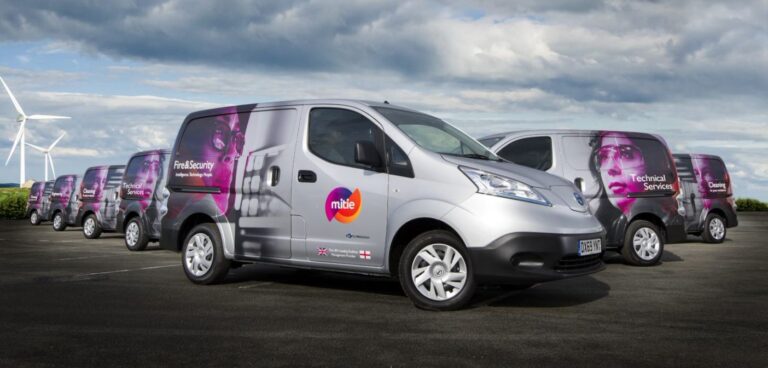Facilities management and professional services company Mitie has announced the transition of half of its operations fleet to electric vehicles (EVs).
After celebrating the addition of its milestone 3,000th EV in December, the company continued to add to its fleet and now operates more than 3,500 EVs. This is a step towards the company’s target to have a fully-electric fleet by 2025.
Heidi Thompson, group fleet manager at Mitie, said: “Reaching the halfway stage in our roadmap to achieve a zero-emission fleet is an important milestone which underscores our commitment to our Plan Zero pledge, and our goal of fully electrifying our vehicles by the end of 2025.
“With more than 3,500 electric-powered vehicles now in operation, we’re proud to boast one of the largest electric fleets in the UK. Mitie continues to lead the way in fleet electrification and is proud to be at the forefront of sustainable practices within our industry as well as supporting other organisations to achieve their own net zero targets.”
According to Mitie, its fleet comprises a wide range of different vehicles, the latest investment being in a fleet of electric vans to be driven by its technical services’ mobile engineers.
Some 2,800 EV charging stations have been installed across Mitie’s customer sites and staff homes to support the expansion of its EV fleet.
In August 2021, Mitie outlined its Plan Zero pledge, making several commitments to improving sustainability, building towards an overarching goal of achieving a ‘net zero carbon estate’ by 2025.
In addition to the 2025 EV target, it also committed to decarbonising 14 sites per year until 2025 and optimise energy usage to save a yearly total of 26 tonnes of CO₂ equivalent. It plans to do this through investment in energy efficiency measures such as LED lighting, insulation, and upgrading old equipment.
As well as meeting its own internal sustainability targets, Mitie is keen to offer its customers opportunities to reduce carbon emissions. Its ‘Decarbonisation Delivered’ initiative is aimed at decarbonising organisations’ practises while reducing costs.
Recent examples of this include assisting in the roll-out of more than 100 electric vans across major contracts including the Home Office and National Grid.





